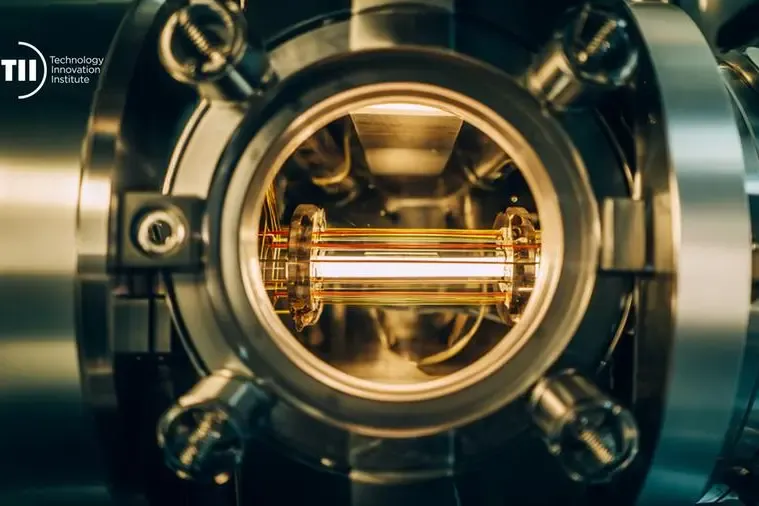Abu Dhabi, UAE: – The Technology Innovation Institute (TII), the applied research arm of Abu Dhabi’s Advanced Technology Research Council (ATRC), has entered a strategic agreement with Quantinuum, a world leader in quantum computing, to accelerate the development and benchmarking of next-generation quantum computing algorithms and commercial applications in the United Arab Emirates (UAE).
The agreement grants TII’s researchers access to Quantinuum’s quantum computing systems, recognized for having high operational fidelity. This includes access to Helios, the company’s upcoming next-generation system, which is expected to demonstrate improvements in gate fidelity and qubit connectivity. This expands TII’s diverse ecosystem of partner platforms, that includes in-house developed superconducting quantum chips, IonQ’s trapped-ion processors, and access via AWS Braket to devices from QUERA, Rigetti, and IQM, among others.
This strategic agreement enables TII to combine state-of-the-art quantum computing systems and research efforts to develop better quantum algorithms, marking an important step in strengthening UAE’s growing position as a global leader in science and technology.
Focused on advancing quantum computing applications across diverse domains of regional and global significance, the partnership’s key research areas include:
- Chemistry and Materials Science: Estimating quantum system properties, such as ground-state energy, for advancements in chemistry and materials, and simulating complex many-body quantum systems, such as superconductors.
- Classical-to-Quantum Data Integration: Identifying efficient methods to encode classical data into quantum states, such as for image processing and data throughput.
- Complex Optimization Problems: Combining Quantinuum’s industry-leading fidelity with TII’s advanced algorithmic techniques for solving large combinatorial optimization problems using very few qubits.
This collaboration is also pivotal in training the next generation of quantum algorithm developers, equipping the UAE and the broader region to harness emerging quantum technologies effectively.
“The agreement with Quantinuum represents a significant step forward in our mission to advance quantum research,” said Dr. Leandro Aolita, Chief Researcher of TII’s Quantum Research Center. “With access to cutting-edge quantum hardware like Helios, we remain at the forefront of quantum research and innovation, further solidifying the UAE’s status as a leading technology and innovation hub.”
“Quantinuum’s partnership with TII marks a powerful alignment of vision and capability,” said Dr. Avinash “Nash” Palaniswamy, Chief Commercial Officer at Quantinuum. “We remain deeply committed to fostering strong partnerships across the region, uniting quantum computing trailblazers with our best-in-class systems to anchor global ecosystems, accelerate research and development, and unlock transformative value for users.”
ABOUT TECHNOLOGY INNOVATION INSTITUTE (TII):
The Technology Innovation Institute (TII) is the dedicated applied research pillar of Abu Dhabi’s Advanced Technology Research Council (ATRC). TII is a pioneering global research and development center that focuses on applied research and new-age technology capabilities. The Institute has 9 dedicated research centers in advanced materials, autonomous robotics, cryptography, AI and digital science, directed energy, quantum, secure systems, propulsion and space, biotechnology, and renewable and sustainable energy. By working with exceptional talent, universities, research institutions, and industry partners from all over the world, TII connects an intellectual community and contributes to building an R&D ecosystem that reinforces the status of Abu Dhabi and the UAE as a global hub for innovation.
About Quantinuum
Quantinuum is a world leader in quantum computing. The company’s systems deliver the highest performance across key industry benchmarks. Quantinuum’s over 550 employees, including 370+ scientists and engineers, across the US, UK, EU, APAC, and the Gulf region, are driving the quantum computing revolution.


